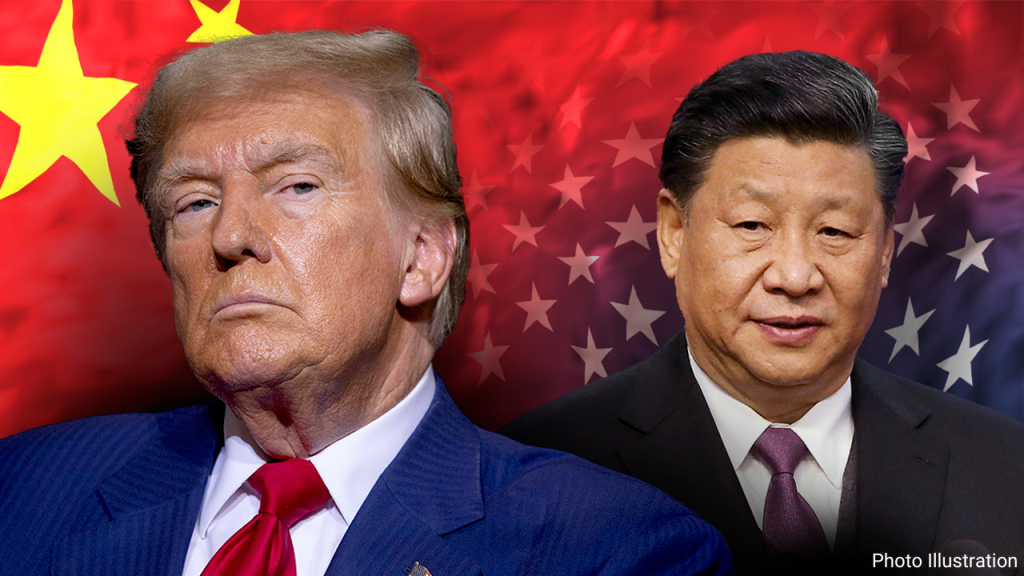In a significant diplomatic move, former President Donald Trump secured $2 trillion worth of agreements with Saudi Arabia, Qatar, and the United Arab Emirates (UAE) during a recent visit to the Middle East. This endeavor is viewed by many as an attempt to counter China’s expanding influence in the region, as Beijing continues to deepen its commercial ties with key Middle Eastern nations. However, concerns have emerged regarding the reversal of a previous policy under the Biden administration that prohibited the export of advanced technologies to these nations, sparking fears that sensitive U.S. technologies could potentially benefit the Chinese Communist Party.
| Article Subheadings |
|---|
| 1) Overview of the Economic Deals |
| 2) Security Concerns Regarding Technology Transfers |
| 3) Strategic Significance of Trump’s Visit |
| 4) Reactions from U.S. Officials |
| 5) Implications for U.S.-China Relations |
Overview of the Economic Deals
During his trip, Donald Trump announced a series of landmark agreements amounting to $2 trillion with three major Gulf nations. These deals spanned various sectors, including technology, investments, and defense, and were characterized by their strategic intent to counterbalance the growing economic presence of China in the region. Particular attention was given to the agreements with the UAE, which aims to establish the largest artificial intelligence hub outside the United States. Moreover, major U.S. tech firms such as Nvidia, ChatGPT, Google, and Amazon secured substantial investments from Saudi-backed AI initiatives, positioning the U.S. at a competitive advantage in the fast-evolving tech landscape.
Security Concerns Regarding Technology Transfers
While the economic musters present a promising outlook, they have also raised serious security alarms among U.S. lawmakers and officials. Concerns particularly focus on how these nations, especially the UAE and Saudi Arabia, will manage U.S. technology to prevent unauthorized access by the Chinese Communist Party (CCP). Senate Democratic leader Chuck Schumer expressed explicit apprehension about the potential for American-made chips to end up in the possession of entities aligned with the Chinese government. He indicated the necessity for clear and strict guidelines to ensure that sensitive technologies do not fall into adverse hands. Furthermore, the reversal of Biden-era restrictions on chip sales to these countries only exacerbates these fears, prompting a bipartisan call for heightened scrutiny over technology transfers.
Strategic Significance of Trump’s Visit
Trump’s visit, which marked his re-engagement with the Gulf states, signifies a critical juncture in U.S. foreign policy. In a landscape of shifting alliances, his approach aims to reaffirm U.S. commitment to allies while undermining China’s influence. Notably, the UAE’s President, Sheikh Mohammed bin Zayed Al Nahyan, received Trump warmly during his visit, demonstrating a desire to strengthen bilateral relations. Security experts suggest that Trump’s presence and the accompanying deals not only foster goodwill amidst regional instability but also establish a framework for stronger military and economic collaboration, a necessity given current geopolitical tensions related to ongoing conflicts in Gaza and Ukraine.
Reactions from U.S. Officials
In the aftermath of the announced deals, various leaders in the U.S. have voiced their concerns regarding the long-term implications. Rep. John Moolenaar, Republican chair of the House Select Committee on the Chinese Communist Party, raised alarms about the potential for the CCP to gain indirect access to high-end American technology. He emphasized the necessity for rigorous safeguards to protect U.S. interests and competitive advantages. Additional voices from among lawmakers indicated the critical need for legislative measures to ensure advanced U.S. AI chips do not fall into adversarial hands, spotlighting the delicate balance between fostering international trade relationships and maintaining national security.
Implications for U.S.-China Relations
The dynamics of U.S.-China relations are continuously evolving, especially as initiatives like those from Trump seek to counter China’s influence in the Gulf. The strategic economic partnerships formed in this region represent an attempt by the U.S. to regain a foothold in a space where China has made significant inroads. While the U.S. aims to leverage technological prowess and resources from these wealthy nations, the ongoing risks associated with technology sharing present considerable challenges. Observers note that without effective checks and conditions on technology transfers, the risks could outweigh the benefits, inadvertently strengthening those entities the deals intend to contain.
| No. | Key Points |
|---|---|
| 1 | Trump secured $2 trillion in agreements with key Gulf nations. |
| 2 | Concerns arise over the transfer of sensitive U.S. technology to adversarial nations. |
| 3 | The trip aims to reinforce U.S. commitment and presence in the Middle East. |
| 4 | Lawmakers are calling for stricter regulations on technology transfers. |
| 5 | The shifting dynamics could further alter the landscape of U.S.-China relations. |
Summary
The recent diplomatic efforts by former President Donald Trump to solidify economic ties with key Middle Eastern nations represent a strategic maneuvering to counterbalance China’s growing influence in the region. While these deals promise significant economic benefits, ongoing security concerns regarding technology transfers underscore the complexities of maintaining U.S. leadership in advanced technologies. As the geopolitical landscape continues to evolve, the implications for domestic and foreign policy remain significant.
Frequently Asked Questions
Question: What were the economic agreements made during Trump’s visit?
The agreements included investments worth $2 trillion in sectors such as technology, defense, and infrastructure with Saudi Arabia, Qatar, and the UAE.
Question: Why are U.S. lawmakers concerned about technology transfers?
Lawmakers are worried that technologies could fall into the hands of the Chinese Communist Party, potentially undermining U.S. national security interests.
Question: What steps are being taken to address these security concerns?
There are calls for legislative measures to impose stricter regulations on technology transfers and establish guardrails to ensure sensitive technologies do not reach adversaries.



